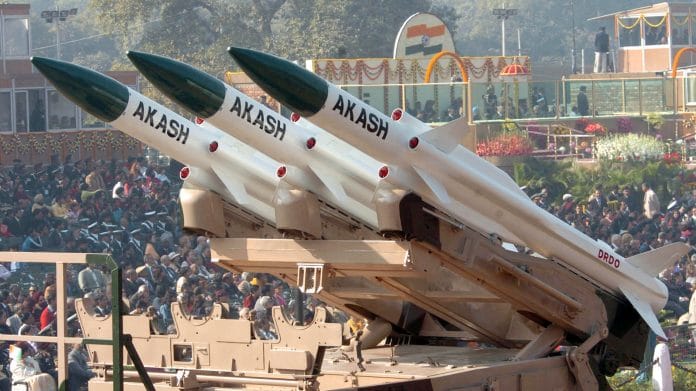Thank you dear subscribers, we are overwhelmed with your response.
Your Turn is a unique section from ThePrint featuring points of view from its subscribers. If you are a subscriber, have a point of view, please send it to us. If not, do subscribe here: https://theprint.in/subscribe/
India and Brazil—two democratic giants of the Global South—are tailoring a new chapter in international partnerships. Built on a premise of shared aspirations for a multipolar world, self-reliant development, and inclusive global governance, their relationship is more than symbolic. It is strategic. Yet, as recent developments show, it is also practical, evolving, and sometimes marked by difficult diplomatic choices.
Strategic Friendship with Real Alignments
The India–Brazil relationship was elevated to a Strategic Partnership in 2006. Since then, cooperation has expanded across key sectors: energy, agriculture, trade, defence, and diplomacy. Both countries are functional members of BRICS, G20, IBSA, and the G4, and jointly advocate for UN Security Council reform, equitable tech access, and stronger South–South solidarity.
In July 2025, Prime Minister Narendra Modi has visited Brazil for the BRICS Summit in Rio de Janeiro, strengthening this growing axis. In an emblematic gesture, President Luiz Inácio Lula da Silva conferred on PM Modi the Grand Collar of the National Order of the Southern Cross, Brazil’s highest civilian honour for foreign dignitaries.
But symbolism aside, the strategic choices made at the summit reflect a more grounded reality of international diplomacy.
Defence Deals: The Akash Pause and Strategic Reset
India and Brazil have long been in talks over a range of defence systems, including the Akash surface-to-air missile, Garuda artillery guns, coastal radars, and the C-390 Millennium transport aircraft. Brazil had initially expressed strong interest in the Akash missile system, known for its indigenous build and battlefield performance.
However, Brazil recently paused the negotiations on the Akash deal. Opting instead to pursue Italy’s EMADS (Enhanced Modular Air Defence Solution), citing its superior range (40+ km) over Akash’s 25–30 km. This decision doesn’t signal a breakdown. It reflects Brazil’s defence calculus and operational needs.
Importantly, both nations used the summit to reassert their defence partnership. Brazil continues to show interest in co-developing systems like artillery guns, surveillance platforms, and joint ventures in small arms production (notably, the Jindal Defence–Taurus Armas JV). The much-discussed Tejas–C-390 aircraft barter deal also remains under consideration, with India exploring the acquisition of 40–80 C-390s and Brazil examining the LCA Tejas as a light combat alternative.
The Submarine MRO (Maintenance, Repair, Overhaul) agreement for Scorpene-class submarines, and collaborative naval exercises like IBSAMAR— remain on the agenda. Over 130 military officers have trained in each other’s institutions, and both sides are committed to deeper institutional engagement through mechanisms like the 2+2 Political-Military Dialogue and the Joint Defence Committee.
The Economic triangle of Agriculture, Energy, and Trade
India–Brazil bilateral trade jumped to USD 12.2 billion in 2024–25. India exports pharmaceuticals, petroleum products, textiles, and engineering goods, while importing crude oil, soya oil, gold, and sugar.
Brazil has emerged as a key energy partner, supplying nearly USD 1 billion worth of crude oil in 2024. Indian oil majors have invested over USD 5 billion in Brazil’s upstream sector, and agricultural cooperation has deepened. The import of 50,000 doses of Brazilian cattle semen reflects a mutual allegiance to food and dairy security.
Talks to expand the India–Mercosur Preferential Trade Agreement are ongoing, aiming to widen the scope of tariff concessions and facilitate smoother access to each other’s markets.
Why Brazil still matters deeply to India?
Brazil’s importance is strategic, not transactional. It holds rich lithium reserves in the Jequitinhonha Valley, vital for India’s EV and battery goals. It offers scale in biofuels, especially ethanol, where technology sharing is underway. In space cooperation, India had launched Brazil’s Amazonia-1 satellite, and both countries are exploring joint climate-monitoring initiatives.
What makes Brazil unique is that it provides India a trusted partner in Latin America, free of border disputes or historical baggage. It’s a country that echoes India’s call for multilateral reform, offers access to critical resources, and can support India’s rise as a defence exporter.
Conclusion: Strategic doesn’t mean Seamless
The halt in the Akash missile agreement is not a setback—it serves as a reality check. Defence relationships are guided by operational suitability, pricing, and technical effectiveness, not merely by political alliances. India’s evolving foreign policy acknowledges this fact.
The overall outlook remains hopeful: India and Brazil are connected not only through agreements but also by shared visions, complementary strengths, and a sincere intention to collaboratively develop a more equitable global order.
The indispensable factors will be patience, perseverance, and adaptability. In the world of geopolitics, even pauses can be progress if the dialogue stays open—and between India and Brazil, it certainly is.
These pieces are being published as they have been received – they have not been edited/fact-checked by ThePrint.


